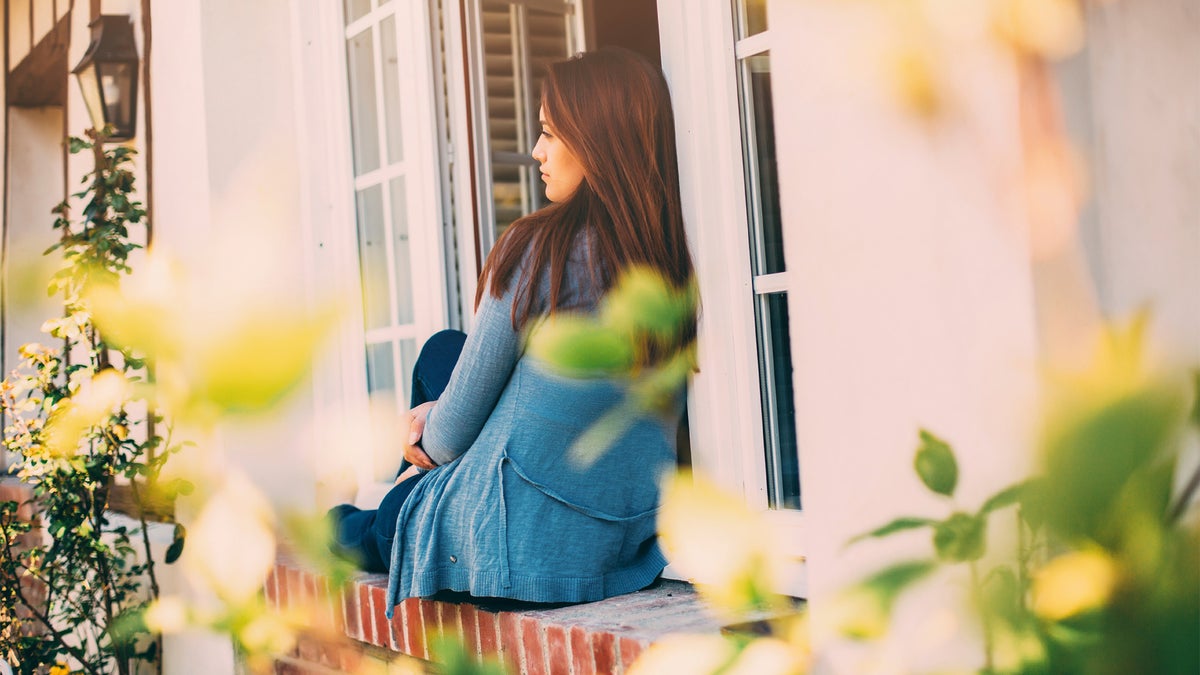
Lonely woman in house
Each year, around 12% of Americans move because of a job, for family, to get into a great school district, or to save money. And 2 million brave souls undertake a "megamove" of 500 miles or more. That's a lot of annual uprooting -- and means we find it harder to put down roots in a new locale.
But in her new book, " This Is Where You Belong," author Melody Warnick explains how she got over her moving doldrums and grew emotionally attached to her new town -- and how you can, too.
Q: It can be so hard to move to a new place and start over. Did you move a lot as a kid?
A: I was one of those kids who never moved. I lived on the same street in Southern California until I was 18. But when I got married, my husband was used to moving around a lot. So every few years, we moved -- to Maryland, Utah, Iowa, Texas. When we got to Texas -- specifically Austin -- we had high expectations that it would be that perfect place. But although we had friends there who would never live anywhere else, it wasn't like that for me or my husband. We kept thinking, "What are we doing wrong?"
Then when he accepted a job offer at Virginia Tech, we moved to Blacksburg, VA, which is a little town. And it was the same feeling. Every time you move, it's lonely and chaotic. But it occurred to me that there was something I was doing wrong. I wanted to put down roots for me and my kids -- ages 5 and 10 at the time. I realized I needed to figure out how to do that. That's how I started to learn about place attachment.
Q: What is place attachment?
A: I think of it as the "no-place-like-home" feeling. The feeling you get when you drive into town and think, "Oh, it's so good to be home!" The feeling that "This is my place. My community." And it doesn't have to be only for your home, but a place you visit on vacation or your grandparents' home. You feel happiness and connection. But I think place attachment can be malleable. I think it can be created by certain behaviors that help us feel more connected.
Q: What types of behaviors?
A: Walking and biking more, because when you're out moving around, you see more people and you experience your town at a slow, easy place. Buying local. Doing fun things that your town has to offer. Getting involved in city government. And then there's "place making," where you get involved in making your city better, whether it's planting a tree or having an event. These are all concrete, doable things people can do whether they're happy or unhappy in their town, whether they've just moved or have lived in the same place their whole life.
Q: What helped you feel more attached to Blacksburg?
A: It's in the Blue Ridge Mountains, and when I first moved here, I felt I was in the jungles of South America! People who are from here love how lush it is, but I was used to flat, wide-open spaces. Studies show that thinking your town is beautiful is key, and what helped me do that was spending more time in nature. I started doing 3- to 4-mile hikes with my friends and our kids. And something about not just looking at the mountains but being in them changed the way I thought of the town. The forestry thing was no longer so ominous and creepy.
Q: What was the most surprising research about place attachment that you uncovered?
A: The Knight Foundation wanted to know what made people feel attached to a place. They thought it would be things like great schools or responsive government, but it was more squishy factors: aesthetics, social offerings, and openness. You think a place is beautiful, it has things to do, and people to do it with, and they're open to new ideas.
Q: What's the No. 1 thing people can do to feel more of a connection to where they live?
A: Start building relationships. That's what we lose when we move. We don't need a million friends and to go out dancing every night, but even casual acquaintances. Find your tribe. It might be through a local church, a soccer team, Rotary Club. If you can find like-minded people, it will change how you feel. We've developed this idea that a good neighbor is one who leaves you alone, but place attachment is geographically tied and the most intimate geography you have is your neighborhood. A University of Michigan study found that people who know their neighbors are up to 48% less likely to have a stroke.
Q: How do you feel about where you live now?
A: I love it. Blacksburg is beautiful. I love my friends. But part of that is because of the time I spent making a conscientious effort to look for the good in this town. My husband and I do have extended family on the West Coast, so part of us thinks that one day, we'll move back. But my philosophy is to enjoy wherever you are for as long as you're there.